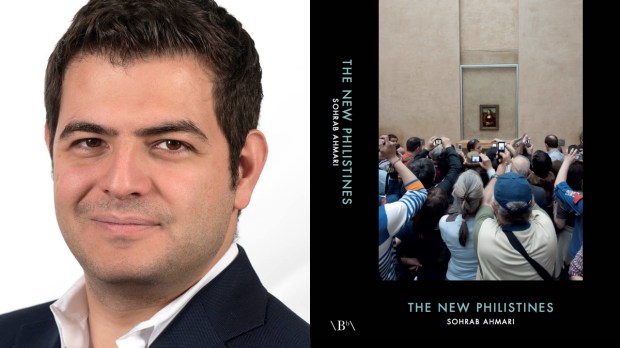Lenten Campaign 2025
This content is free of charge, as are all our articles.
Support us with a donation that is tax-deductible and enable us to continue to reach millions of readers.
Aleteia posed six questions to Sohrab Ahmari about his new book, The New Philistines, published by Bitepack Publishing. The book looks at the way identity politics has crowded out what art has always been primarily about — the quest for truth, beauty, and honest criticism and self-expression.
1) What inspired the book?
The immediate impetus came from watching an awful performance of Shakespeare’s A Midsummer Night’s Dream at the Globe, the theater built near the site of the one co-founded by the Bard some 400 years ago. The production was a mess aesthetically, and Artistic Director Emma Rice was determined to lecture and chastise the Bard for his crimes against PC identity politics circa 2016. Having fallen in love with the Globe, I despaired of what had happened to the institution — so I wrote this polemic against the takeover of the arts by the identitarians.
2) If you could give this book another title, what would it be?
Enough Identity!
3) What story or anecdote in this book most personally resonated with you?
I note in the introduction that I was born and raised in Iran, where the ruling Islamists view art as an ideological enterprise. It worries me to see so many Western cultural elites mirror the same kind of thinking.
4) Did writing this book teach you anything?
Yes, a valuable lesson for this ex-smoker: that I’m capable of writing a book (albeit, a short polemic) without nicotine.
5) If there is one person you want to reach with this book, who would that be?
As a writer and thinker, I’m always trying to reach myself 10 or 15 years ago. That’s my ideal reader: someone young and intellectually curious and sensitive who is dissatisfied with what the culture offers, and wants to better understand where the dissatisfaction comes from and perhaps what to do about it.
6) What is the ideal beverage to have in hand while reading your book?
This is a Scotch kind of book.
This is the second of Aleteia‘s weekly author interview series on books worth reading. See our first one here: The Shepherd Who Didn’t Run with Maria Ruiz Scaperlanda.

